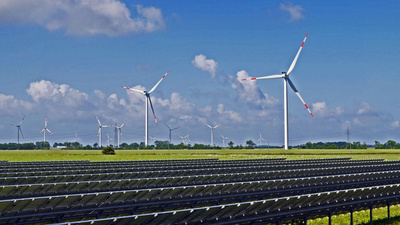A noted columnist and energy industry observer told Real Clear Energy that renewable energy industries such as wind and solar power have become subsidized cash cows that will offer little except make Americans energy-starved like Europeans.
“There is only one way out of this madness,” Bill Peacock told Real Clear Energy. “America must eliminate renewable subsidies before we find ourselves paying European energy prices, riding around in European-style mini-cars, and living on top of each other in European-sized apartments.”
Subsidies from government, taxpayers, consumers and other sources for renewable energy suppliers reached a record $55 billion last year, the report said.
“Traditional energy sources (oil/gas) that have helped make the United States one of the most prosperous nations in history are rapidly being forced out of the marketplace,” Peacock said.
He said to keep the renewable industry rolling, Americans will pay over $120 billion from 2006 through the year 2029 in subsidies, tax credits and mandates for generation and transmission.
“Rather than benefit taxpayers, these funds will primarily boost the profits of multi-billion-dollar generators and Wall Street bankers who invested the $55 billion last year,” Peacock said.
The subsidies also include generous donations to “nonprofit” advocates of renewables in capitols across the country, who Peacock said act as lobbyists to gain more subsidies.
“The biggest subsidy for renewables is the federal production tax credit (PTC), which Congress first adopted in 1992—and renewed once again last December. The PTC largely benefits wind generation, and will cost taxpayers more than $51 billion through 2029—money that’s going to companies with combined market caps of more than $300 billion," he said.
The solar industry is also a big player in getting subsidies.
Peacock said solar power is highly inefficient and extremely expensive to produce.
“That hasn’t stopped the federal government from giving investment tax credits (ITC) to the industry that will exceed $25 billion,” he said.
Peacock added that states also put money into the renewable energy pie.
“Texas is the nation’s leading producer of wind energy,” he said. “Yet most of the thousands of wind turbines littering the Texas landscape would not exist if Texas had not built subsidized transmission lines. These 'CREZ' lines were needed because while the wind blows best in West Texas, most Texans live far to the east and along the Gulf Coast. The CREZ lines will cost Texans around $19 billion over their estimated useful life.”
Peacock said states including Texas have funneled taxpayer dollars into renewable energy companies like NextEra (Florida Power and Light), BP (British Petroleum) and EDF Renewables (Electricité de France).
“Most states have done this by adopting renewable portfolio standards (RPS), which mandate that a certain percentage of electricity used be generated by renewables,” Peacock said.
As an example, Peacock cited an aggressive policy in California that is undercutting reliable power plants (oil/coal) putting them out of business.
Peacock indicated that sinking money into renewable energy industry whose payback has been limp and sidelining traditional energy sources is a loser.
“Because of the harm caused by the $120 billion that Americans are forced to pay to the renewable industry, we are now being forced to pay billions more to keep traditional generators afloat,” he said. “American can be energy independent with an affordable and reliable energy supply. Americans just need to convince our politicians of what the rest of us already know.”









